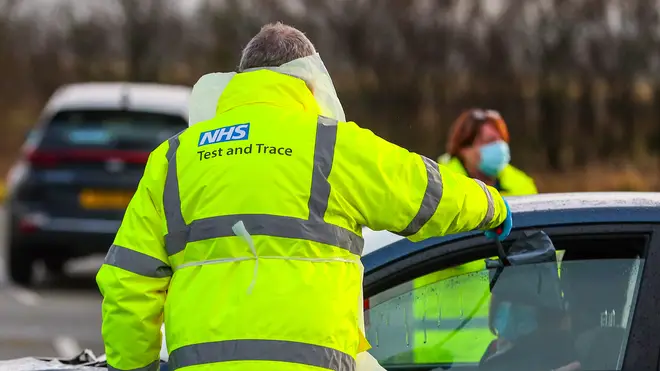
Shelagh Fogarty 1pm - 4pm
13 April 2021, 00:31 | Updated: 13 April 2021, 09:02

The so-called Kent coronavirus variant is more transmissible but does not cause worse disease, new research suggests.
Two studies have found no evidence the variant, B117, causes worse symptoms or puts patients at more risk of long Covid than those who are infected with a different strain.
One study looked at patients in London hospitals while another used data logged by 37,000 UK users of a self-reporting symptom app.
The authors of both studies acknowledged the findings are different from other studies of the variant and called for more research.
Scientists have worried about variants because they could spread more easily and be more deadly, and vaccines may also be less effective against them.
The rapid spread of the Kent variant led to the UK scrapping its planned relaxation of restrictions for Christmas and led to another lockdown.
Read more: 'Largest surge testing yet' starts after South Africa variant found in South London
Read more: Kent Covid-19 variant 'most common lineage' in US

Virologist explains why Kent variant is 'on course to sweep the world'
The new studies were carried out between September and December, when B117, now the dominant variant in the UK and other countries, emerged.
In the study of patients at University College London Hospital and North Middlesex University Hospital, 36% of patients with the B117 variant became severely ill or died, compared to 38% of people with a different variant.
A total of 16% died after being infected with B117 compared to 17% of patients with another variant.
However, 58% of people who had their test swabs sequenced had B117, which was first detected in Kent. The study was published in The Lancet Infectious Diseases journal.
Dr Eleni Nastouli, from University College London Hospitals NHS Foundation Trust and the UCL Great Ormond Street Institute of Child Health, said: "Analysing the variant before the peak of hospital admissions and any associated strains on the health service gave us a crucial window of time to gain vital insights into how B117 differs in severity or death in hospitalised patients from the strain of the first wave.
Read more: Shoppers and drinkers take advantage of new freedoms as lockdown restrictions eased
Read more: Next phase of UK Covid vaccinations to begin after all priority groups offered dose
"Our study is the first in the UK to utilise whole-genome sequencing data generated in real time and embedded in an NHS clinical service and integrated granular clinical data."
Analysis of the other study, published in The Lancet Public Health and carried out with King’s College London, revealed no statistically significant associations between the proportion of B117 within UK regions and the type of symptoms people experienced.
However, the authors found that the variant increased the overall R number, a measure of how many people an infected person could pass Covid on to, by 1.35 times compared with the original strain.
This estimate is similar to those from other studies investigating the variant's transmissibility.